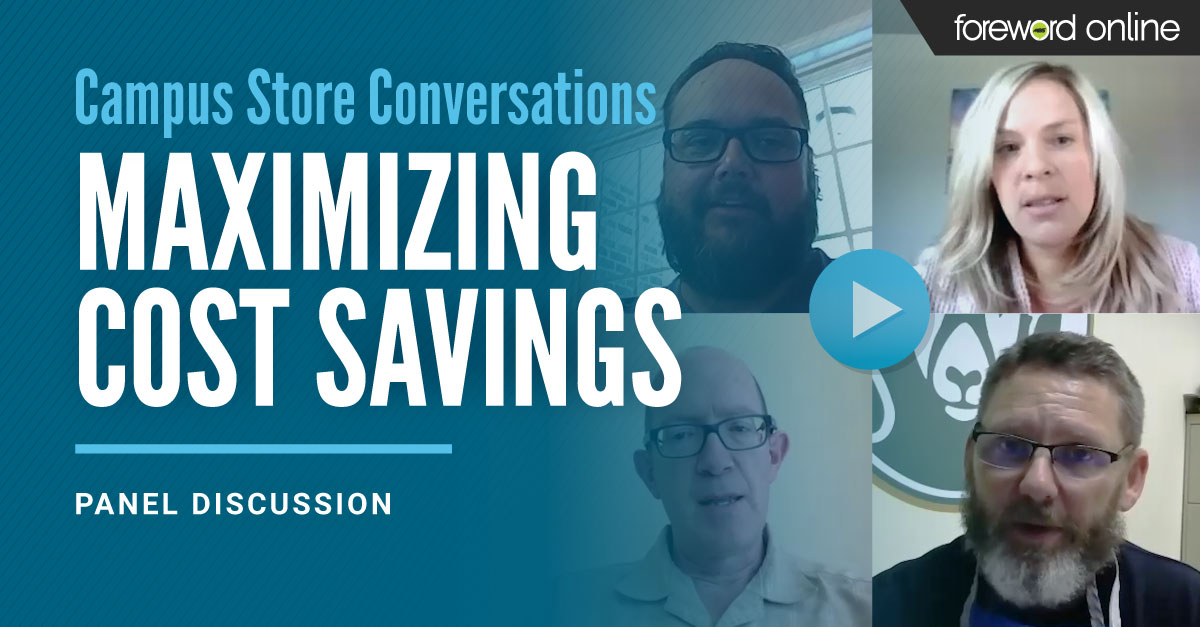The evolving nature of the educational landscape has inspired recent course material innovation. From new formats to new delivery mechanisms, each creative solution helps improve student learning, preparedness and affordability. However, it also means that course materials are no longer as simple as they once were.
 Share your course material expertise to improve the student experience
Share your course material expertise to improve the student experience
The bookstore possesses a wide understanding of the course material industry. You directly hear from students about which type of materials they prefer. You understand how cost impacts students’ willingness and ability to purchase textbooks. You hear when materials aren’t used.
You can help you identify course material related problems your campus and find the best solution.
Do assess your campus’ the most prevalent course material issues
Have course material costs on your campus gotten out of control? Are students not purchasing all of their course materials? Look at your store’s data. Create and distribute a survey to find out how the students on your campus view course materials and what influences their purchases. Gather as much information as you can to identify the key issues surrounding course materials on your campus.
Don’t get overwhelmed by the problem
Course materials and student attitudes about them can be complicated. There may not be once specific issue to solve. When you collect a lot data and input, look for consistencies. The problems you see or hear the most are best place to start.
Do speak to student groups
Students are your primary customer for textbooks. Get a better understanding of how students view course materials and what their biggest barrier is to purchasing materials. Attend student group meetings where they plan to discuss course materials and volunteer to speak to their group about how the bookstore can help them make course materials more affordable.
Don’t assume students understand all of their options
Not all students enter college with the same level of understanding about course materials. Some first-year, first-generation students may not anticipate how much textbooks actually cost and may not be aware of the more affordable options available. Help build student trust by sharing information at summer welcome events.
“Textbooks are a critical component of the entire student experience. We have surveys that tell us that typically less than a third of the students have books for the first day of class, which is unfortunate and can put them behind in their courses — not the best way to begin a semester,” Len Oser, general manager at UConn Bookstores, said. “That’s why it is important for the bookstore to get the message out. We are trying to not only enhance the educational experience but save students money at the same time.”
Do develop a plan
Is there an obvious solution that would help alleviate some or all of the issues? What have other stores done in similar situations? What worked and what didn’t work for them? Look at the potential solutions available to your store through the various resources available to you. What is the best-case scenario? Which solution is mostly likely to work for your students and faculty. Develop a plan on how to introduce this idea to faculty and administration, market it to students and identify what it will take to implement the plan on your campus.
Don’t hold onto what you have always done.
If there are course material issues plaguing your campus, then consider changing the way things have always been done. Be open to change and to asking for help. Take proactive steps to fix the problem before it gets out of hand.
Do seek input from course material stakeholders on campus
Making real changes to the way course materials are handled on a campus requires buy in from various campus groups. Who will be affected by your plan and what people on campus can help make the plan a reality? Set up meetings with those people to discuss the course material situation and how to you think it can be solved. Be collaborative with those people and let their input help hone your plan.
Don’t get frustrated by red tape
Change can be slow. It may take time to generate interest in your plan. Start slow, and let results speak for themselves.
Do speak to faculty groups
Faculty select the course materials. You must have their buy-in for any plan you develop from inclusive access to courseware solutions. Speak to individual faculty members and faculty groups. If you start by working with individual faculty members who are interested in increasing affordability or student preparedness in their class, ask if they would be willing to present with you and share the results of your joint efforts with faculty groups.
“First and foremost, we had tremendous support from our provost. Our provost has been excellent at speaking with faculty and bringing them into the program. Our textbook manager notifies the provost when he hasn’t gotten an adoption or when someone calls wanting to change a book at the last minute or other issues like that. The provost helps us by addressing those issues,” Keith Chapman, managing director auxiliary services at Belmont University, said. “In addition, we speak to the faculty senate at least once a year. We speak at the Fall Faculty Forum once a year. We go to department meetings when we’re asked, and we speak at the provost council which involves all the deans. That has really begun to make a difference. We can see the support lining up behind the program.”
Do join course material committees
If course material conversations are already happening on your campus, join the committee discussing them or offer the committee your expertise.
Course material conversation are going to happen on your campus. Be proactive about making sure the bookstore is represented in those conversations and help give students a great experience that maximizes their chance for success.



![Navigating Complex Course Material Trends [White Paper]](https://foreword.mbsbooks.com/hubfs/Navigating-complex-course-material-trends-FO.jpg)
![3 Paths to Better Wantlist Fulfillment [Infographic]](https://foreword.mbsbooks.com/hubfs/10-28--3-Paths-to-Better-Wantlist-Fulfillment-%5BInfographic%5D.jpg)
